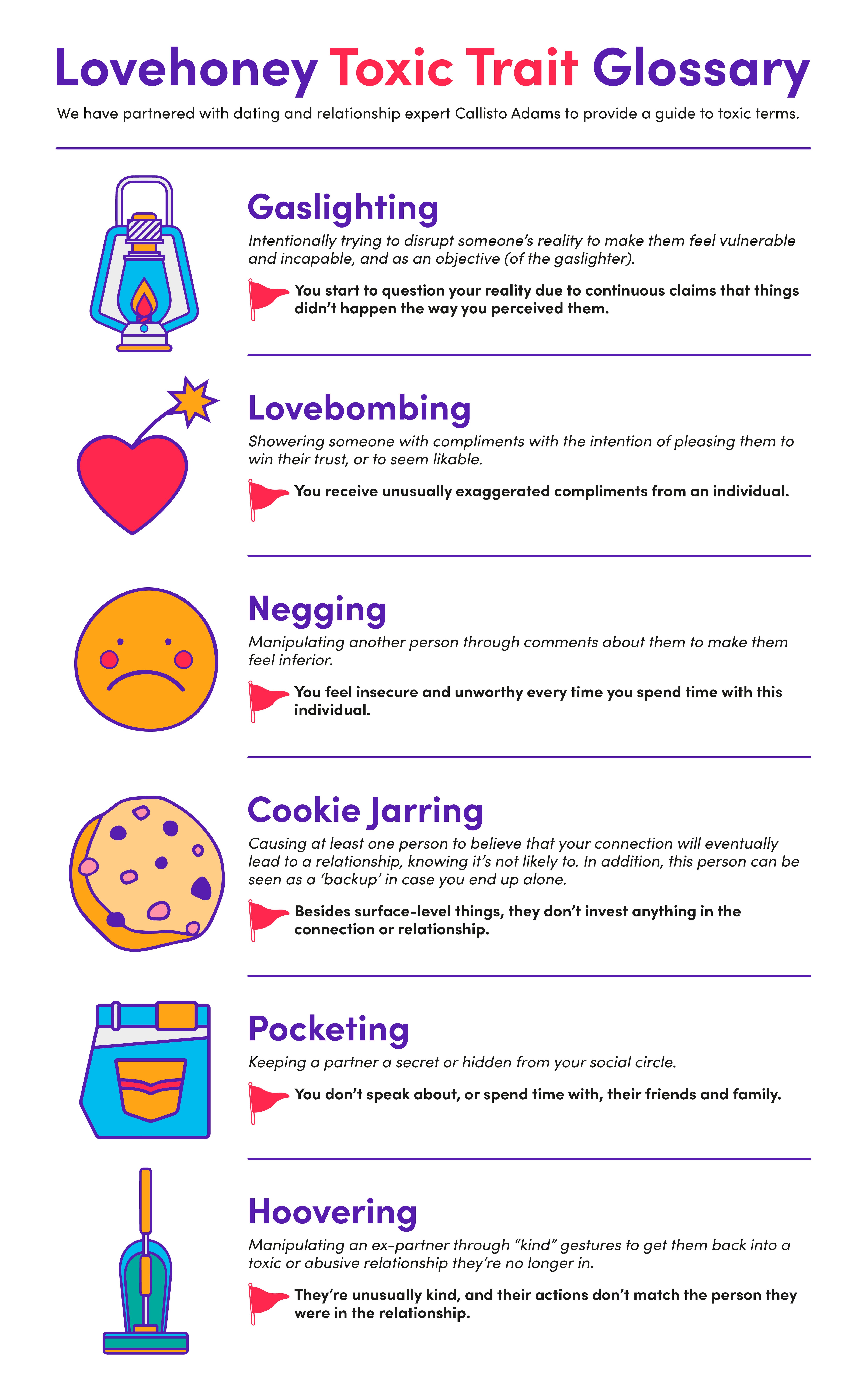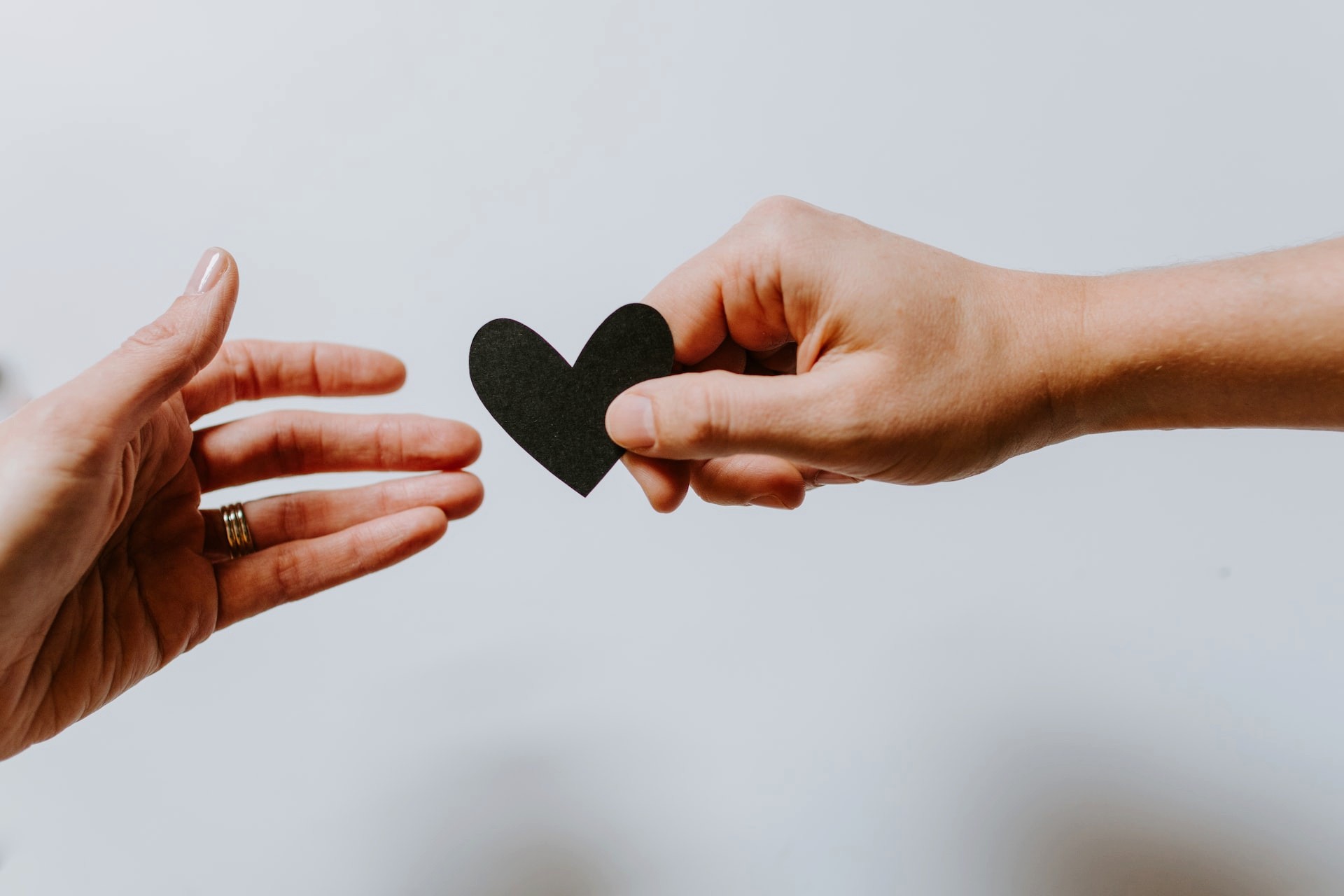The Lovehoney Advice Guide to Toxic Relationships
Relationships – they’re great, until they get messy, but when a relationship leaves you feeling more frustrated than love-struck, it may be that things are turning toxic. From dishonesty to gas-lighting and love-bombing, if any of this feels familiar to you, it may be time to hang up the dating shoes and reinvoke your single status.
As with most things in life, no relationship is ever perfect. Even when two soulmates meet, there can be disagreements and bumps in the road.
If you sail through those choppier waters together and take on the world as a united front, you’ll listen to each other, work things out together and understand each other.
With the right person, things will simply feel right. Some call it ‘finding the one’ but put simply, it’s just being in a relationship that is good, healthy, and stable.
Toxic relationships don’t all look the same, and sometimes that broad spectrum of difference can cloud your vision, making it difficult to recognise if you are in a relationship that isn’t serving you well.
Feeling insecure about yourself and your feelings? Pulling in your green-eyed monster as you deal with relationship envy? Feeling a shift in your general mental well-being?
These are often the subtle tell-tale signs that things aren’t going the way they should be, and nearly always the first indication of a relationship that is beginning to turn toxic.
Of course, at the other end of the spectrum is the not-so-subtle. Violence and aggression, coercive control, gas-lighting and over-stepping consent boundaries are all serious red flags.
In any nature, toxic relationships affect you by threatening your well-being in several ways. It could be emotionally, mentally, or even physically that you feel and experience toxicity with a partner or close relation.
Despite the negative impact toxic relationships have on people, in a recent survey, we uncovered the statistic that almost 40% of Brits have experienced toxic traits in romantic situations. Spotting the signs early is the best way to protect yourself from staying in an unhealthy relationship.

A toxic relationship doesn’t always come in the size, shape and colour of an obvious red flag. Here are some of the more subtle signs it may be time to start flying solo:
- You bring out the worst in each other, in a way that is detrimental to your relationship.
- You feel that your confidence and self-esteem has become less throughout the course of your relationship.
- You feel negative emotions when you spend time with the other person in your relationship.
- You feel as though your needs aren’t being met, or your boundaries are being overstepped.
- You feel that you are often wrong, or at fault.
- You feel claustrophobic, or like you don’t have enough time to yourself and your relationship is becoming all-consuming.
Our Lovehoney Toxic Trait glossary explains some of the most common traits in toxic relationships. Gas-lighting, love-bombing, negging, cookie-jarring, pocketing, and hoovering are the top six toxic traits experienced by brits in recent years.
Decide If Your Relationship Can Heal
Toxic relationships can get better. Dependent on how and why the relationship became toxic, and whether both partners can commit to making things better, there can be a glimmer of hope for couples who find themselves here.
If you think your relationship is more toxic than it is healthy, then take a step back to fully assess the situation. Is it you, or them? Is it both of you? Are your relationship problems situational or circumstantial? Can you see a way forward? If you decide your relationship still has solid foundations for happiness, let your partner know you are ready to work for it.
Of course, sometimes a toxic relationship can’t be mended (and shouldn’t be). In the case of an abusive, manipulative, or violent relationship, the best outcome is always to walk away.
Communicate and Talk It Through
If you think your relationship can be healed, then be prepared to face your problems head-on with lots of honesty, self-reflection, and two-way communication. At this point, you have addressed that something has gone wrong in your relationship. Now, with your cards laid on the table, use the opportunity to talk it through.
This is the time to use your voice, to sound out your concerns and feelings to your partner but be willing to listen too. Sometimes, relationships (and people) can turn toxic without full awareness of it happening. Maybe you, or your partner, have underlying problems such as depression, insecurities, or jealousy tendencies that need to be worked on.
Whatever the cause, whatever the reason – having an open and thorough conversation can help you both move forward. You may even need to consider professional help, such as relationship counselling or couple’s therapy to start building bridges.
Be Prepared to Leave
You can’t always save a sinking ship. Some relationships are not meant to be saved. Love should never compromise your happiness and well-being, and in times where it does and you can see no way back, you need to be willing to walk away.
In cases where the toxic traits have had a direct impact on your confidence and self-esteem, you may need to spend some time on yourself first. Reaffirm to yourself that you are good enough and strong enough to walk away, that you can have more and that you deserve better.
Sometimes, a toxic relationship can leave us feeling undervalued. You might question your worth, or you might have found yourself believing that what you have now is the best you will get.
This is not true, your self-worth is not measured by the status of your relationship, and if leaving is the right thing for you, for your mind and body – then be strong enough to walk away.
Toxic relationships often have a hidden superpower – they can blind our vision, making it almost impossible to see when we are in one ourselves. This is why often an outside perspective is needed.
If you think a friend, or someone you know is in a toxic relationship and you are concerned for their emotional, mental, or physical well-being, then try raising the subject with discretion. Here are our top 3 tips for handling the conversation:
Ask, Don't Assume
Making the bold assumption that your friend is in an unhealthy relationship could automatically push ‘go’ on their defense button. Instead, try to subtly bring the conversation around the topic of relationships and open the floor for your friend or relative to express themselves.
Ask questions about their relationship and be willing to share your own experiences so that any obvious concerns can come to the surface without your friend feeling intimidated or put on the spot.
Spend Time Together
Sometimes, when a person is in a toxic relationship, they will need space to be away from their partner. Plan your diaries so you can spend time together. A trip to the local pub, a shopping trip, a gym visit or an early morning run together can be perfect ways to provide that much-needed space.
More importantly, if your friend or relative feels that they have someone to talk to and spend time with, they may be more willing to discuss anything that worries them.
In some cases, where a fear of being alone is present, they may then feel that they have the confidence (and support) to walk away from a relationship that makes them unhappy.
Be Supportive
If, and when the time comes that your friend leaves their toxic relationship, be prepared to lend a shoulder for support. Let your friend know that you are there for them, offer to listen and be willing to share the emotional load. If your friend is not yet ready to leave, but still needs someone on their side, be ready and waiting.
Sometimes active support is best offered earlier, and sometimes it needs to come later. Use your discretion to be the best friend you can be.
If you are currently in a toxic relationship, or have experienced one, please remember that it is not your fault. If this guide has brought up anything for you or a person you know and you would like to talk to someone about it, you need some support, or you want to know more, here are a few great resources for you to take a look at:
